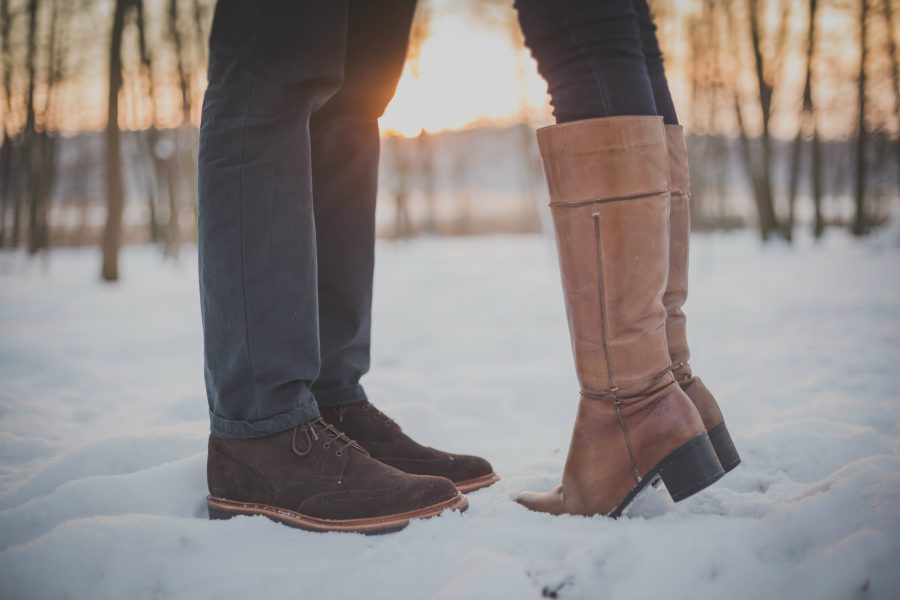As the weather grows cold, people are beginning to seek warmth and comfort from another person by participating in a dating phenomenon called “cuffing season.”
Cuffing season typically emerges every November. With cuffing, people choose a person they would like to be “cuffed” to and stay with that person throughout the cold holiday season.
Patty Woodward, a kinesiology and health science associate professor who teaches human sexuality, said that cuffing differs from a quick hook up because it implies a relationship of some sort.
“(Cuffing season) is supposedly not with the intention of being (together) long-term,” Woodward said. “Sometimes that changes. Sometimes that doesn’t last since we’re all humans. It’s not an absolute that you’re going to be able to stay together that long or even that you’ll like one another.”
Isaiah Alexander, a junior communication studies major who began a cuffed relationship around February, said that although cuffing is traditionally meant to be from November to the new year, it can also become more long-term.
“If that cuff ends up being something more than you intended for, you can go pass the season into the next season and the next season and just have a continuing relationship,” Alexander said. “Or it could just be (for) that temporary satisfaction.”
For Alexander, the number one rule in a cuffing relationship is communication. Those who are cuffed together should address what kind of relationship they want —such as whether they still want to be exclusive to each other after the season. If a person no longer wants to be cuffed during the course of the relationship, he said that should be addressed as well.
“I guess, normally, I cuff every season if I had to, that’s only because it’s fun to share time with people who are cool and you like,” Alexander said. “It’s not a bad thing, as long as it’s nothing but love, you know, no abuse going on.”
Alexander said that cuffing season occurs because there are fewer activities to do outdoors and more to do indoors during the winter. People want to spend time with someone whom they feel deserve that space with them.
“There’s a lot of snuggling, a lot of cupcaking,” Alexander said. “Sometimes a lot of sex. Sometimes money will be spent (on) gifts, movies watched (and) cooking.”
According to Woodward, the season doesn’t necessarily mean that people who engage in it are just having sex. It’s based on the individual and what kind of relationship they want with their partner.
“It could just mean what relationships mean (to them),” Woodward said. “There are relationships that are just making out and there are relationships that are just cuddling buddies, where there’s really no sex involved. I think that some people may say ‘We are cuffing,’ but it’s just having a partner to do things with.”
Rachena Singh, a senior studying biology, doesn’t participate in cuffing season but said that it could also mean cuffers just want someone to spend the holidays with.
“I guess when it’s around the holidays and you’re surrounded by family and friends, you see all this emotion everywhere and you just want that too,” Singh said. “It’s nice to have someone there to share those moments with.”
Although cuffing isn’t an activity she encourages, Woodward said that if people are going to do it, they should do so safely.
“I think if this sort of thing is done correctly —by that I mean finding out that you’re STI-free and if the person you’re going to be hooking up with is also STI-free,” Woodward said. “As long as it’s consensual and no one is mentally or physically injured, then I can’t really say that it’s bad thing.”






















































































































